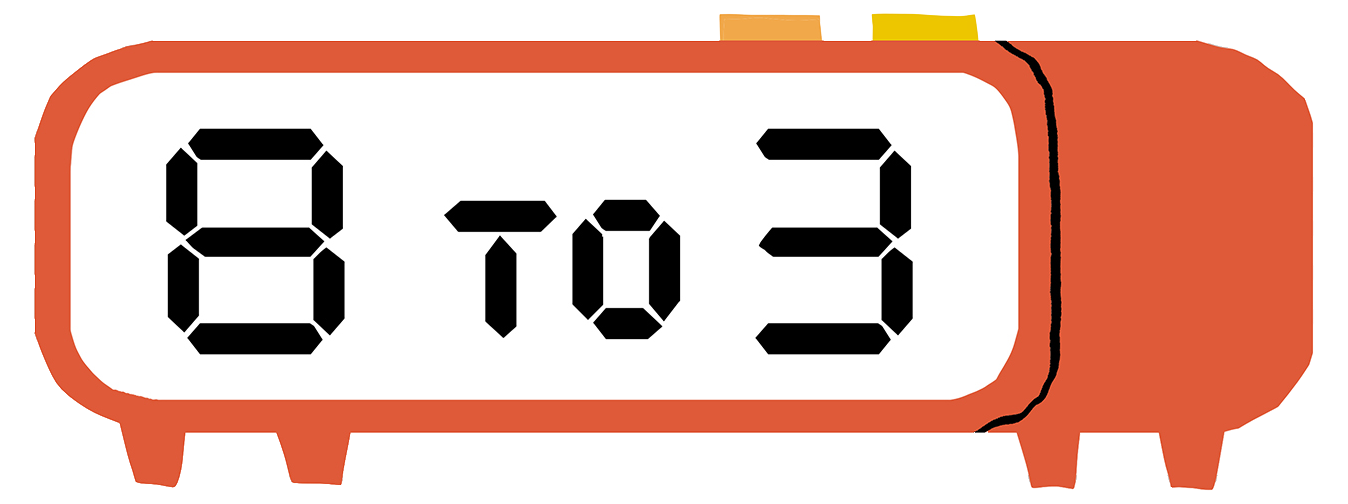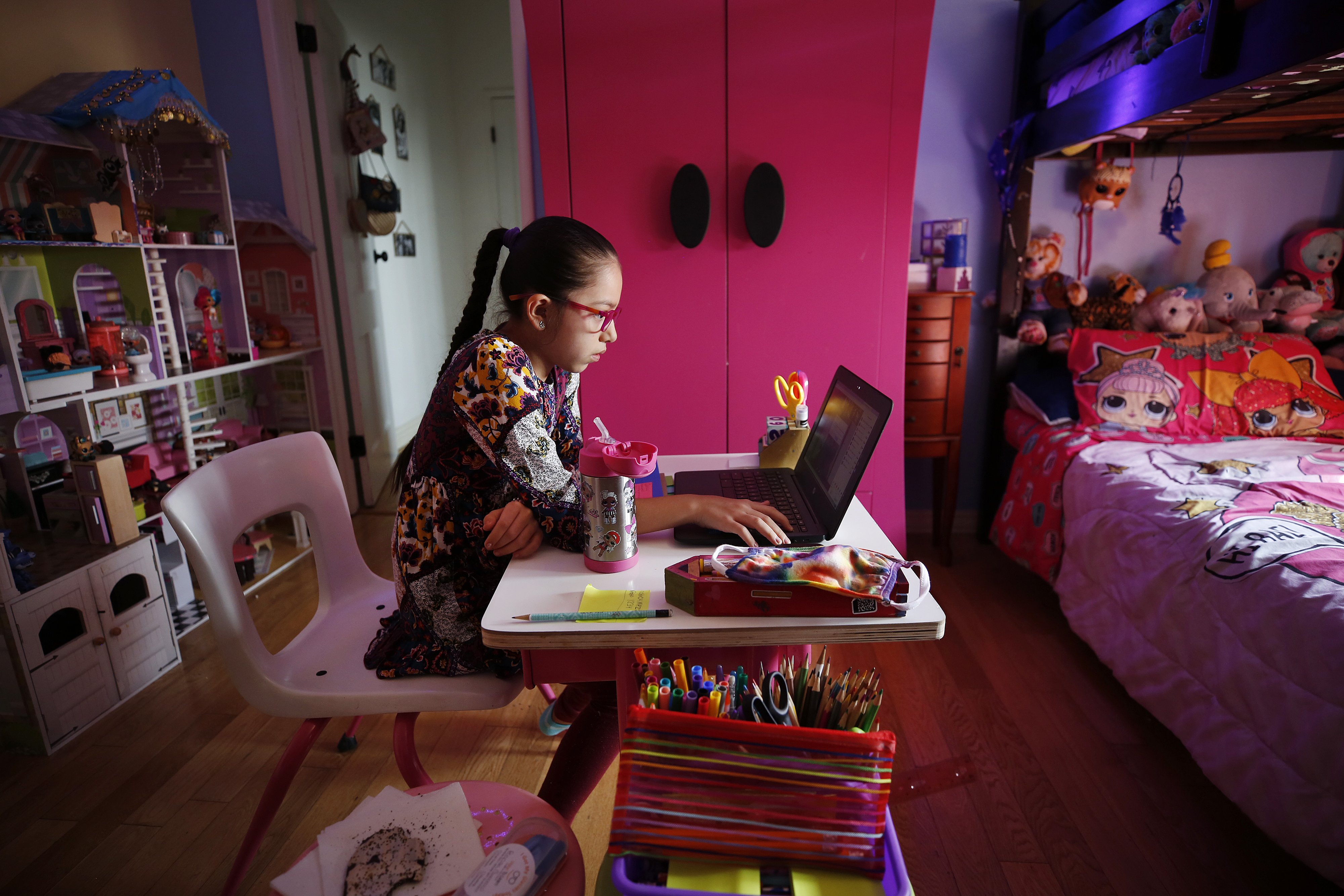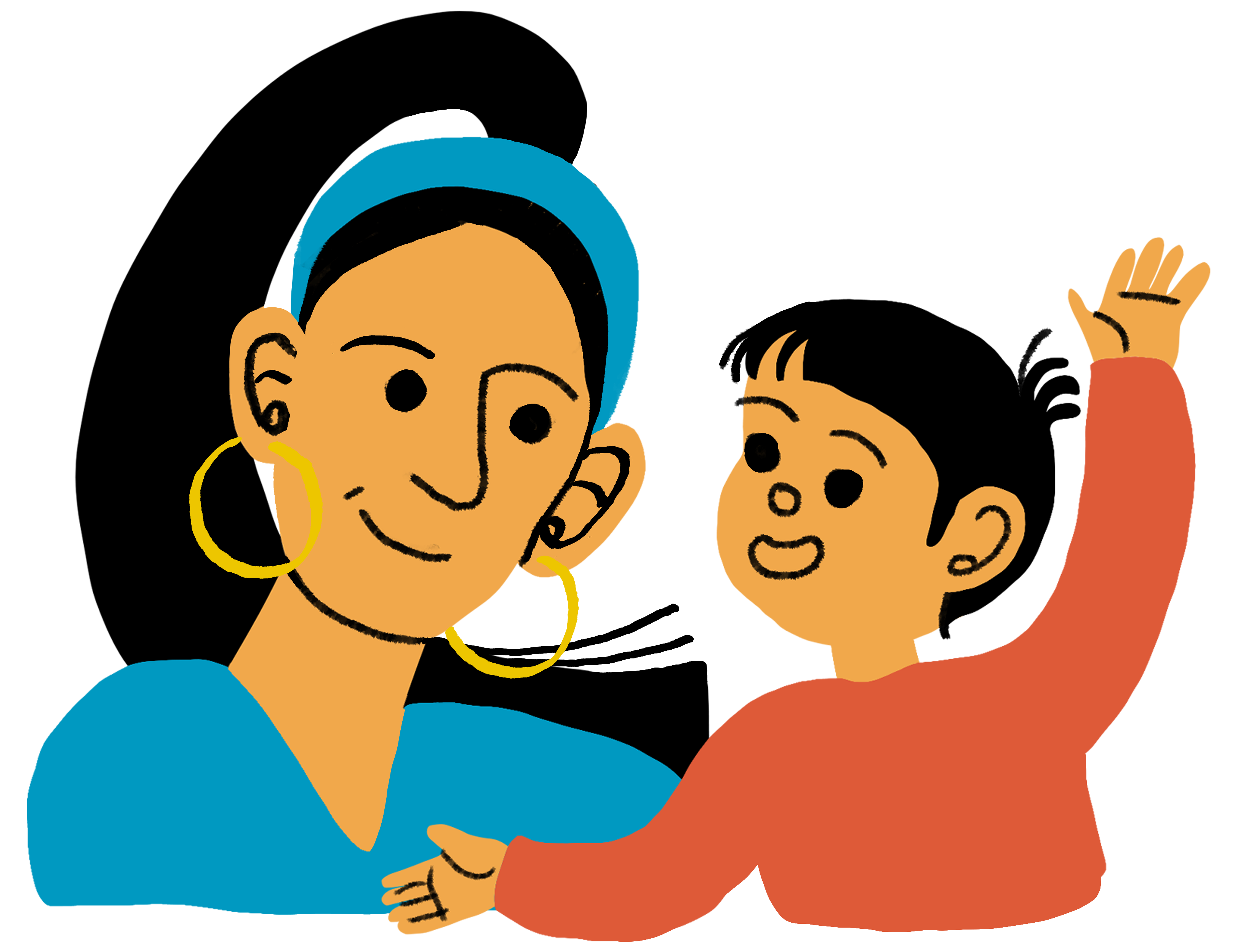I can recall my parents intentionally talking with me about sex just once — a very succinct and sanitized version of the "birds and the bees" (by which time I already knew far more than they were telling me). In my family, sex was an adult topic, not something children should be thinking or asking about.
That was the status quo back then, so I certainly don't blame my parents for not knowing how to talk about and normalize sex. But now, thanks to the sex-positive movement, more resources than ever are available to caregivers who want their children to grow up knowing that sexuality is a natural, healthy part of the human experience.
Helping lead that conversation is sexuality educator and social worker Melissa Pintor Carnagey. In 2017 she founded Sex Positive Families, an online platform that provides education and resources to families wishing to raise sexually informed and empowered kids.
"Sexuality is an aspect of being human that is with us our entire lives, not just a phase that starts at puberty," Pintor Carnagey told me. "This means there are many opportunities within childhood to foster a young person's sexual health early and ongoing."
I spoke with the Austin, Texas-based educator last week about how parents might begin to broach these traditionally uncomfortable topics with their kids, but we really just scratched the surface. Pintor Carnagey's new book, "Sex Positive Talks to Have With Kids," walks parents through dozens of conversation starters about bodies, consent, pleasure, gender, online pornography and more — so if you're looking for more detailed guidance, I encourage you to pick up a copy.
Our conversation has been edited for length and clarity.
8-to-3: You talk about having a pleasure-positive approach when talking with kids about sex and their bodies. What do you mean by that, and why do you think it's important?
Melissa Pintor Carnagey: Withholding information about bodies, pleasure and sexual health is what keeps children vulnerable to abuse and unsafe situations. When children grow up knowing and trusting their bodies, they have the greatest opportunity to live safer, more satisfying lives. When parents deny, dismiss or erase pleasure, a young person is more likely to enter sexual situations like faking orgasms; going along with sex when it isn't truly desired; feeling shame toward their own body and sexuality; being less aware of the nonverbal cues of partners; not knowing how to communicate about their wants, needs and limits; not being aware of or respectful of other people's bodies and boundaries; and being victims or perpetrators of sexual assault or abusive relationships.
Sexual health talks with our children must be shame-free and must include pleasure. The best way to open up the dialogue is starting early: naming their body parts, helping them connect with their feelings, normalizing masturbation and self-exploration, and talking about safe/unsafe touch so they know the difference. As they grow, the conversations and their understanding will evolve to prepare them for understanding pleasure in the context of partnered sex.
8-to-3: How does the bodily autonomy of children and consent factor into sex-positive parenting?
MPC: Raising children who become adults that understand consent, respect and healthy boundaries means creating a home culture where the necessary skills and communication are consistently practiced long before it has anything to do with sex.
Everyday opportunities are available within parenting to support this, like asking before sharing affection ("May I give you a hug?"); not forcing children to share affection with others; and respecting when they set their body boundaries. ("You said stop. I respect that.")
8-to-3: When I think about parenting and sex, what comes to mind immediately, of course, is the "birds and the bees" talk. How do you recommend parents approach this?
MPC: The earlier parents start establishing an open, shame-free approach, the more relaxed the conversations about sexual health will be with young people. Also know that it isn't too late to begin or deepen talks. I can give you a few helpful pointers:
- Focus the talks on preparing children, not scaring them. Be careful not to center the conversations on risks or fear-based messaging.
- Be honest. Children can tell when we're trying to keep information from them. If they're old enough to have asked, they're old enough to receive an honest response.
- Keep the learning fun. Thankfully, there are so many options now for introducing or deepening sexual health knowledge, like podcasts, pop-up books, interactive apps and animated videos. Engage them in ways they like to learn.
- Get comfortable with saying things like, "I don't know. That's a great question. Let's look that up together." If you hold onto pride, you risk losing credibility and their trust. It's also valuable to model not having all of the answers and learning how to seek them out.
- Keep an open door. The goal is to have lots of little conversations over time, not just one, and every talk is an opportunity. Let your child know that you're always there for their questions or concerns. Nothing is off-limits, weird or too much. Make it clear that your primary role is to be a trusted support to them, no matter what comes their way. If we don't make it safe for our children to be curious with us, they'll be more likely to turn to less reliable, less safe resources or people for their answers.
8-to-3: On your Instagram page, you say that parents should talk with kids about porn once they have access to a smartphone or the internet without adult supervision. Do you have some tips for how to talk with kids about porn? And should we be actively protecting them from porn, or should we just assume that they'll come across it even if we don't want them to?
MPC: We have to open up conversations about porn, not just set up parental controls or rely on monitoring software, because children these days are online at earlier ages, and more frequently because of the pandemic and virtual schooling. Talking about sexualized media helps kids understand their responsibilities while using devices and what they may come across while online. It also helps them see their own role in maintaining safety in digital spaces and while consuming media.
Some tips:
- Normalize their curiosities. Many instances of kids' exposure to porn began as a normal curiosity about bodies or sex. Reassure them: "It's totally normal to be curious about bodies and sex. You're not in trouble."
- Be sure to define what porn can mean. This helps clarify myths or misinformation, and makes it more possible for them to recognize if they come across sexualized media. That could sound like: "Videos or pictures of naked people online or of people having sex can be called porn, and porn is not made for children. It can send unhealthy, unsafe and confusing messages about bodies and sex."
- Provide safe alternatives for understanding these topics: "If you want to learn about bodies or sex, here are some safe options made for your age and to help you learn."
- Establish agreements that keep them safer while using devices: "We're going to set up parental controls and some guidelines for the devices you use. This will make it easier for you to stay safer online." Common Sense Media is a great resource for learning about parental control options. Talk about agreements such as not having cellphones or devices in certain spaces like at the dinner table or after a certain time in sleep spaces.
8-to-3: Puberty can be such a confusing, exciting and painful time. How can we best prepare kids for those changes, and how can we support them as they're happening?
MPC: Puberty is all about change, and change is a lot easier when you know what to expect and you have shame-free support from people in your life to help you through it. Many of us did not grow up with this, so our memories of puberty may be harder than they needed to be because there were so many taboos and far fewer resources available than we have today.
Three things we can do differently:
- Talk to all kids about the different ways bodies can experience puberty, not just how their body may be changing. This helps lessen the mystery, misinformation, and allows them to be an empathetic support to peers and others.
- Get some gender-inclusive puberty education resources that can make the talks more engaging and take the pressure off of you to "know it all." Great options are "The Every Body Book" by Rachel E. Simon; "Wait, What?" by Heather Corinna; videos by Amaze and Every Body Curious.
- Be conscious of how we talk about bodies, bodily functions and puberty. Are we silent about these topics? Are we negative versus positive? Are we using euphemisms instead of the actual words? How do we talk about and nurture our own bodies? Kids pay attention to not just what we say but what we do and model. Dismantling any body or sexual shame or misinformation we may be carrying can help us to feel more confident and prepared mentors for a tween.
L.A.'s young, unentitled scholars (and more)
The seniors at Downtown Magnets High School don't take college for granted. They represent the new generation of students reshaping the face of higher education in California: young people with lower family incomes, less parental education and far more racial and ethnic diversity than college applicants of the past. My colleague, Teresa Watanabe, profiled several of these students as they set their sights on higher education.
The FDA has now authorized the use of COVID boosters for people as young as 12.
California children who have lost a parent to COVID-19 could receive up to $5,000 in state-issued trust funds under a bill to be introduced in the Legislature this week. The state subsidy might later be expanded to a "baby bonds" program for children living in poverty, reports Times writer Mackenzie Mays. The legislation would give up to $3,000 to designated low-income children younger than 9 and up to $5,000 for children ages 10 to 17 if a parent or guardian has died from COVID-19.
Employees at all Los Angeles County public and private schools will have to wear medical-grade masks at work, and students and staff must wear masks outdoors in crowded spaces under tightened rules that were issued in anticipation of classes beginning Monday amid a major surge of the highly contagious Omicron variant. Schools will have two weeks from the date of reopening after winter break to comply with the mask rules.
A lengthy report released earlier this month details accounts of inappropriate behavior at the private Cate School in Carpinteria, involving 17 former faculty members and stretching back to the 1960s, Times writer Colleen Shalby reports.
Enjoying this newsletter?
Consider forwarding it to a friend, and support our journalism by becoming a subscriber.
Did you get this newsletter forwarded to you? Sign up here to get it in your inbox every week.
What else we're reading this week
The pandemic could cost today's children 17 trillion dollars in lost earnings over their lifetimes, according to a new report by the United Nations and the World Bank. NPR
An anesthesiologist says California still isn't doing enough to ensure the safety of children who are sedated at the dentist, despite changes in the law prompted by the death of a 6-year-old in the Bay Area. San Francisco Chronicle
A rural California school district has meted out unspecified discipline to a group of students who posed with swastikas and other Nazi symbols drawn on their bodies. The superintendent of Wheatland Union High School said that, for legal reasons, she couldn't be more specific. Sacramento Bee
For-profit colleges have made a comeback, thanks to the pandemic. Because many of their programs are already online, these corporate education institutions could "pitch themselves as providers of safe and practical benefit to the homebound and the dislocated," the New Yorker reports.
Education for the skilled trades appears to be returning to fashion as a growing number of high school students doubt the value of a four-year college degree. Washington Post
K-12 schools around the country are pressing forward with tentative plans to reopen after the holiday break despite a surge in coronavirus cases. Wall Street Journal
Ethnic studies will soon be required in all California high schools, some of which already offer a similar course. Here's what one looks like in San Diego, where "high school students are learning about things rarely discussed in classrooms, such as the enslavement of Native Americans, the origin of the N-word, and the elements of implicit bias and privilege." San Diego Union-Tribune (currently for U-T subscribers only)
I want to hear from you.
Have feedback? Ideas? Questions? Story tips? Email me. And keep in touch on Twitter.





No comments:
Post a Comment
Keep a civil tongue.